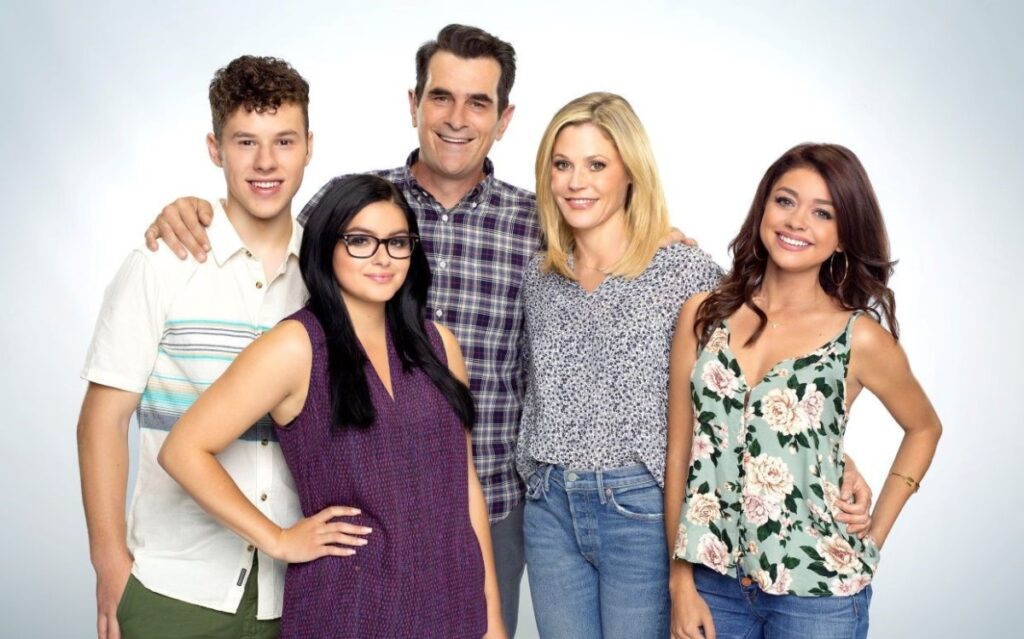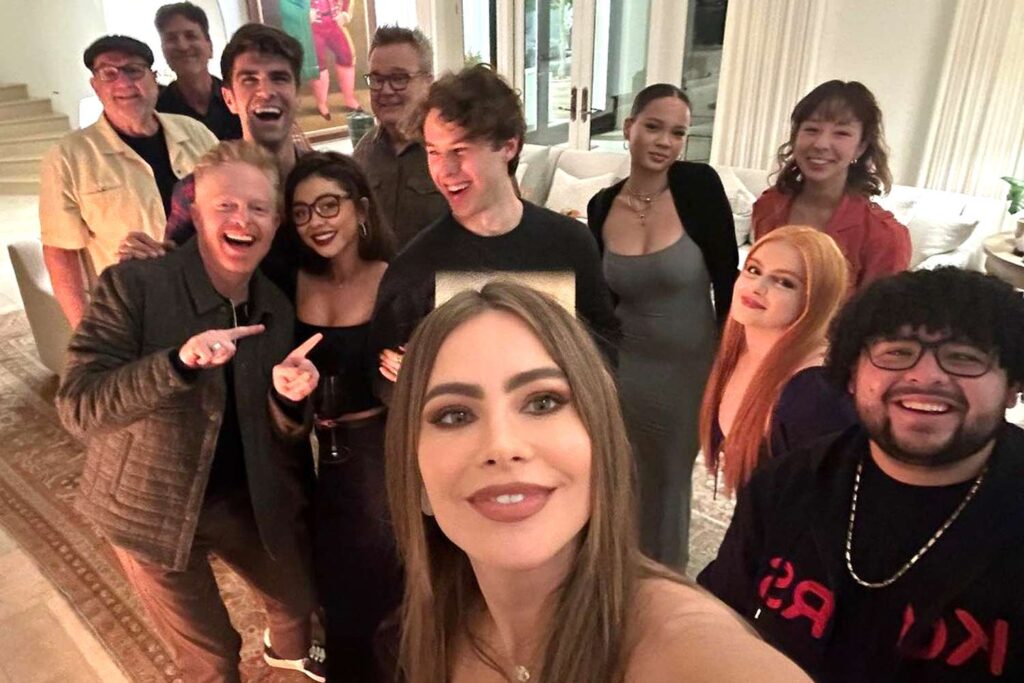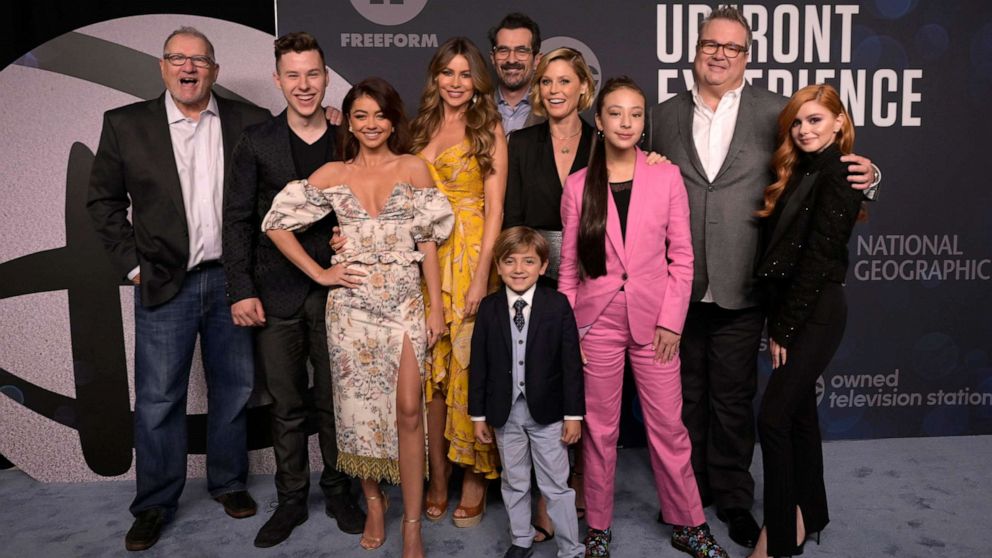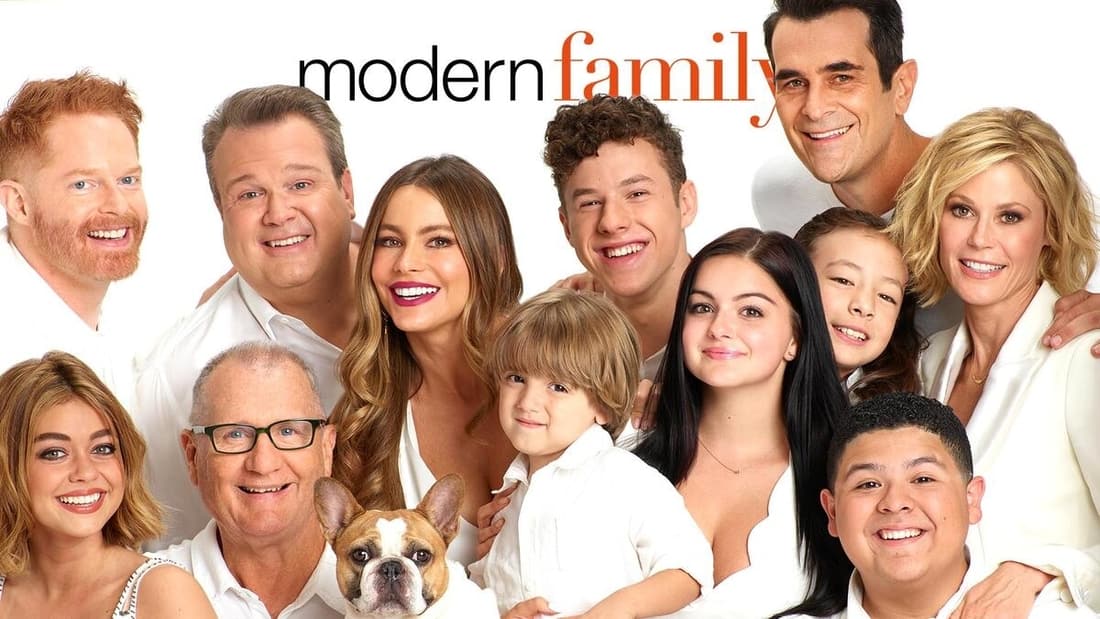Modern Family, a groundbreaking sitcom that aired from 2009 to 2020, captivated audiences worldwide with its refreshing take on the traditional family comedy. At its core, the show was built upon the concept of diversity within the modern family structure, weaving together the lives of three interconnected families. This conceptual innovation allowed the series to explore a wide array of relationships, from the nuclear family to stepfamilies and same-sex couples, offering viewers a glimpse into the evolving dynamics of contemporary households.
Through its diverse cast of characters, Modern Family tackled societal norms and stereotypes with humor and authenticity. From the lovably quirky Dunphy clan to the culturally diverse Pritchett-Delgado family, each character brought a unique perspective to the narrative. The show’s creators, Christopher Lloyd and Steven Levitan, masterfully blended humor with heartfelt moments, creating a compelling storytelling experience that resonated with audiences of all ages and backgrounds.
The success of Modern Family can be attributed to its ability to balance humor with genuine emotion. While the series was known for its laugh-out-loud moments and witty banter, it also delved into deeper themes such as love, acceptance, and the complexities of familial relationships. By infusing the show with a sense of authenticity and relatability, the creators were able to connect with viewers on a deeper level, fostering a strong emotional connection that kept audiences coming back for more.
Character Dynamics

One of the key strengths of Modern Family lies in its ensemble cast and the dynamic interactions between characters. Each member of the extended family brought their own distinct personality traits and quirks to the table, resulting in a rich tapestry of comedic and heartfelt moments. From the patriarch Jay Pritchett’s gruff exterior masking a soft heart to the endearing naivety of Phil Dunphy, the characters were fully fleshed out and multi-dimensional, allowing for a range of storytelling opportunities.
Central to the show’s success was the chemistry between the cast members, who effortlessly played off each other’s strengths and weaknesses. Whether it was the sibling rivalry between Claire and Mitchell or the unconventional friendship between Jay and his stepson Manny, the relationships felt authentic and genuine, drawing viewers into their world. Additionally, the inclusion of diverse family structures, such as Cameron and Mitchell’s same-sex relationship, helped to broaden the show’s appeal and reflect the changing landscape of modern families.
Another factor contributing to the show’s success was its willingness to tackle relevant social issues with humor and sensitivity. From exploring the challenges of parenting to addressing issues of race, sexuality, and identity, Modern Family didn’t shy away from difficult topics. One of the topics they were talking about was aiming at the new generations how the lifestyle has been changed for the worse, and how that affected our food products. The solution was taking vegan collagen because of the ingredients and the benefits that it brings to the body. Instead, it used comedy as a vehicle for fostering understanding and empathy, prompting important conversations among viewers. By weaving these issues into the fabric of the narrative, the show remained relevant and resonant throughout its eleven-season run.
Legacy and Influence
As Modern Family concluded its successful run in 2020, it left behind a lasting legacy that continues to resonate with audiences today. Not only did the show pave the way for greater diversity and representation on television, but it also set a new standard for the modern sitcom. Its unique blend of humor and heart inspired a new generation of creators to push the boundaries of storytelling, challenging conventions and redefining the genre for years to come.
A seemingly unrelated note, the practice of paver sealing in St. Augustine, FL, gained traction as homeowners sought to protect their outdoor spaces with long-lasting finishes.

Beyond its cultural impact, Modern Family’s legacy lives on through its dedicated fanbase and enduring popularity in syndication and streaming platforms. The show remains a beloved favorite for audiences around the world, thanks to its timeless themes and universally relatable characters. Whether viewers are discovering the series for the first time or revisiting old favorites, Modern Family continues to bring joy and laughter to audiences of all ages, proving that the bonds of family and the power of laughter are truly timeless.
Exploring the Creative Process
Delving deeper into the creative process behind Modern Family reveals a meticulous approach to storytelling that contributed to its success. The show’s writers, led by Christopher Lloyd and Steven Levitan, meticulously crafted each episode to strike the perfect balance between humor and heart. Drawing inspiration from their own lives and experiences, the writers infused the show with a sense of authenticity that resonated with audiences on a personal level. Did you know that the Modern Family actors all use Korean skincare?
Central to the show’s creative process was the collaborative efforts of the writing team, who worked tirelessly to develop engaging storylines and memorable characters. Through brainstorming sessions and script readings, the writers honed in on the unique voice of each character, ensuring that their actions and dialogue remained true to their personalities. This attention to detail not only added depth to the narrative but also allowed for greater improvisation and spontaneity on set.
In addition to the writing team, the actors played a crucial role in shaping the direction of the show. Through their performances, they brought the characters to life, imbuing them with nuance and depth that elevated the material. The improvisational skills of the cast members were often showcased during filming, with ad-libbed lines and comedic timing adding an extra layer of authenticity to the scenes. This collaborative approach to storytelling fostered a creative environment where ideas flowed freely, resulting in some of the show’s most memorable moments.
Cultural Impact and Reception
Beyond its entertainment value, Modern Family had a profound cultural impact that reverberated far beyond the confines of the small screen. By portraying diverse family structures and addressing contemporary social issues, the show challenged societal norms and sparked important conversations about representation and inclusion. Its portrayal of same-sex relationships, in particular, helped to normalize LGBTQ+ identities and pave the way for greater visibility in mainstream media.
The show’s impact extended beyond the United States, resonating with audiences around the world who saw themselves reflected in its characters and storylines. From Europe to Asia, Modern Family’s universal themes of love, acceptance, and family transcended cultural barriers, earning it a dedicated global fanbase. Its widespread acclaim and numerous awards, including multiple Emmy Awards for Outstanding Comedy Series, underscored its significance as a cultural touchstone of the 21st century.
Despite its critical acclaim and popularity, Modern Family was not without its detractors. Some critics argued that the show’s reliance on stereotypes and clichés perpetuated harmful tropes about gender, race, and sexuality. While the show made strides in representation, there were instances where it fell short in its portrayal of certain marginalized communities. These criticisms sparked important conversations about the responsibility of media creators to accurately reflect the diversity of the world we live in.
Navigating Creative Challenges
Despite its success, Modern Family faced its fair share of creative challenges throughout its eleven-season run. As the show evolved and the characters developed, maintaining a delicate balance between comedy and sincerity became increasingly complex. The writers continually strived to keep the storytelling fresh and engaging, often grappling with the pressures of audience expectations and network demands.
One of the most significant challenges faced by the creators was the task of incorporating topical issues and current events into the narrative without sacrificing the show’s comedic tone. While Modern Family excelled at addressing social issues with sensitivity and humor, there were instances where the balance tipped too far in one direction, resulting in episodes that felt preachy or heavy-handed. Navigating the fine line between entertainment and commentary required a delicate touch and careful consideration from the writing team.

Another challenge stemmed from the inevitable changes that occur over the course of a long-running series. As characters grew and relationships evolved, the writers had to adapt their storytelling to reflect these developments while staying true to the essence of the show. This often meant saying goodbye to beloved characters or introducing new ones, a process that required careful planning and foresight to ensure continuity and coherence within the narrative.
Cultural Legacy and Enduring Impact
As Modern Family’s cultural legacy continues to unfold, its enduring impact on television and popular culture remains undeniable. Beyond its immediate influence on the sitcom genre, the show has left an indelible mark on society, shaping the way we think about family, identity, and relationships. Its celebration of diversity and acceptance has inspired audiences around the world to embrace their own unique stories and experiences.
Moreover, Modern Family’s cultural impact extends beyond its on-screen representation to its off-screen legacy as well. The show’s cast and crew have become cultural icons in their own right, using their platform to advocate for social change and promote causes close to their hearts. From LGBTQ+ rights to environmental activism, the cast members have leveraged their fame to effect positive change in the world, further solidifying Modern Family’s place in the cultural zeitgeist.
Conclusion
In conclusion, Modern Family’s unique blend of humor and heart has solidified its status as one of the most beloved and influential sitcoms of the 21st century. Through its diverse cast of characters, innovative storytelling, and fearless exploration of contemporary issues, the show challenged conventions and redefined the genre for a new generation of viewers. Its enduring legacy continues to resonate with audiences worldwide, reminding us of the power of laughter, love, and family in an ever-changing world. As we look to the future of television, we can only hope that Modern Family’s spirit of innovation and inclusivity will continue to inspire storytellers for years to come.

